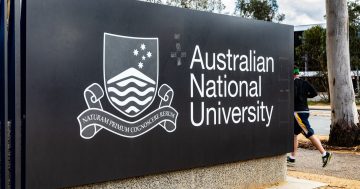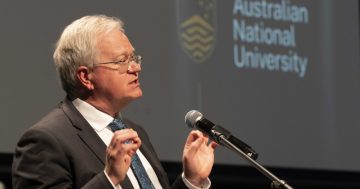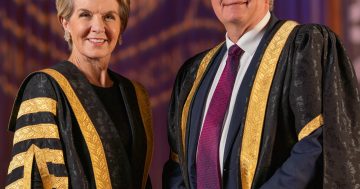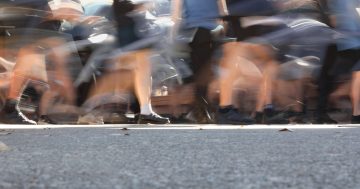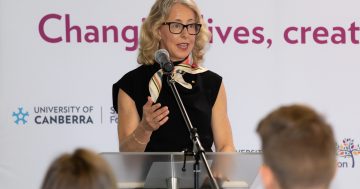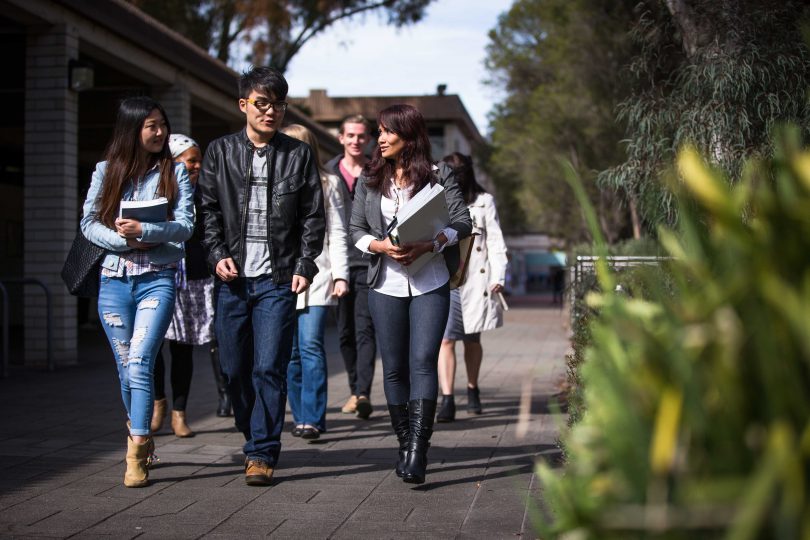
Many classes at UC are already delivered online and a rollout of online classes, where possible, will occur from Tuesday, 14 April. Photo: File.
The Australian National University and the University of Canberra have made the move to bring all their classes online in response to social distancing regulations to prevent the spread of the COVID-19 virus.
The ANU will close its campus on Monday (30 March), and all staff will work away from the campus from today (26 March).
Students will move to remote or online classes and study methods and only limited and essential classes will continue on campus.
The University of Canberra will become a virtual campus from midnight on Sunday, 29 March, until at least the end of semester one, which has been extended by one week to 30 May to allow students to complete courses in the timeframe originally intended.
For the beginning of the second semester on 14 April, all classes at UC will be delivered remotely following the scheduled mid-semester break and week-long class-free period.
Staff at both campuses will continue to be paid and only a small group of researchers will continue lab-based work on COVID-19, while others will maintain essential services such as financial payments, payroll and security.
“We will still operate as the nation’s university, but likely not from our campus until at least the end of the semester on 27 June,” ANU vice-chancellor Professor Brian Schmidt said in a memo to all staff and students on 25 March.
UC vice-chancellor and president Belinda Robinson said, “We continue to adapt to the evolving environment, guided by the ACT and federal government advice and our commitment to ensuring our students are able to continue with their studies”.
The University’s residences will stay open, as will the childcare centres, however, all of the university’s buildings will be locked and 24/7 access removed.
Professor Brian Schmidt said strict social distancing and hygiene protocols will be in place for staff and students who remain on campus.
“ANU medical experts are clear – to control the spread of COVID-19 we must take tough action to reduce the number of interactions on our campus, and take it now. And that is what we are doing,” Professor Schmidt said.
“We are living in extraordinary times and this means we need to respond in an extraordinary way. Our job now is to keep our great university operational, and our community safe,” Professor Schmidt said.
The University of Canberra will continue to follow all advice provided by federal and ACT governments in response to the rapidly changing COVID-19 situation.
Ms Robinson said staff have been working tirelessly to ensure that personal distancing measures are being implemented.
“The University of Canberra is well advanced in its transition to online course delivery. Many classes are already being delivered online and full rollout where possible will occur from Tuesday, 14 April.
“In these challenging times I want to acknowledge my extraordinary colleagues at the University of Canberra who have been pulling out all stops to ensure that our students can continue their studies while looking after their own health and that of their friends, peers and family,” said Ms Robinson.
The week following the mid-semester break from 6 to 13 April will be class-free, while arrangements are being developed for some lab and other practical course work that cannot be delivered online.
“There is no doubt that the levels of anxiety being felt by our community is rising, as it is everywhere,” Ms Robinson said.
“We understand staff may be feeling anxious about their own health, and that of their family or loved ones, experiencing mental health issues, or have school-aged children to care for following the ACT Government’s announcement of pupil-free days in public schools.”
Any staff directly affected by COVID-19 will have access to up to 10 days of pro-rata paid miscellaneous leave from UC.
“We hope that this will go some way to help in taking some stress off our people as they seek to adapt, not only to changes within the university but those enacted by others,” Ms Robinson said.
Both ANU and UC have implemented a number of measures including regular information updates, a constantly updated COVID-19 advice and information portal, and an in-house medical and counselling service available for students and staff.
“As we navigate our way through these uncharted, stormy seas, our priority, first and foremost, is the health and wellbeing of our students, our staff and our community,” Ms Robinson said. “We will get through this together. We will cross the bridge.”












